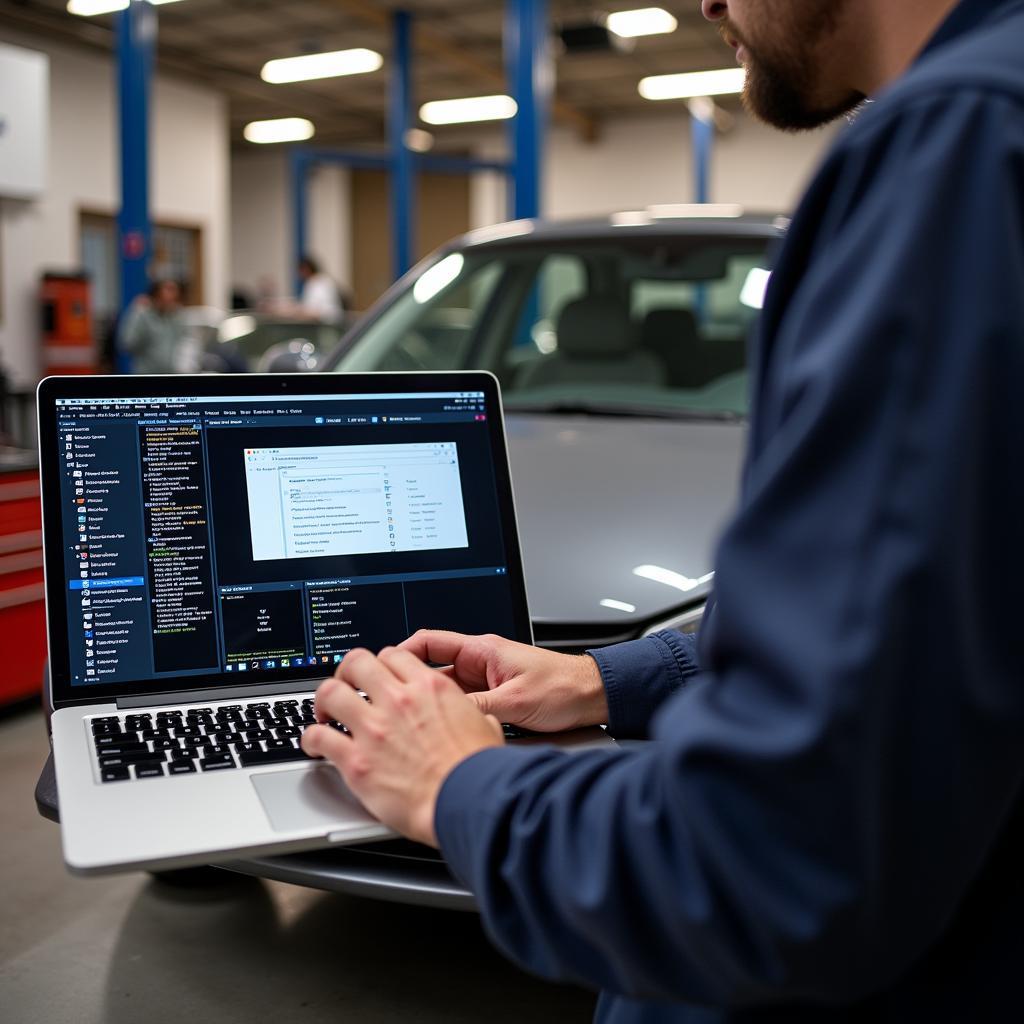Is your car struggling to start? Are your headlights dim or flickering? You might be facing a car battery problem or alternator issue. These two components are crucial for your vehicle’s electrical system, and a malfunction in either can leave you stranded. Knowing how to distinguish between the two and troubleshoot the problem is essential for every car owner.
Identifying the Culprit: Battery or Alternator?
A dead battery is a common car problem, but sometimes a faulty alternator is the underlying cause. So, how can you tell the difference? Several key indicators can help pinpoint the source of the trouble. If your car starts with a jump but dies soon after, the alternator is likely the culprit. A bad alternator won’t recharge the battery, even while driving. Conversely, if your car doesn’t start at all, even with a jump, and the headlights are very dim, the battery itself is probably dead. Other signs of a failing alternator include dimming dashboard lights, unusual whining noises, and electrical accessories malfunctioning.
Simple Tests to Pinpoint the Problem
Before rushing to a mechanic, you can perform a few simple tests yourself. The first is the jump-start test mentioned earlier. If the car runs after a jump but dies again, it points towards a bad alternator. Another test involves checking the battery voltage with a multimeter. A fully charged battery should read around 12.6 volts. If the voltage is significantly lower, the battery is likely discharged. You can also test the alternator output while the engine is running. The voltage should be between 13.5 and 14.5 volts. A lower reading suggests the alternator isn’t charging properly.
“A simple multimeter can save you a lot of time and money,” says John Smith, Automotive Electrical Systems Engineer. “It’s a valuable tool for quickly diagnosing battery and alternator problems.”
Troubleshooting Common Car Battery and Alternator Issues
Several factors can contribute to car battery problems or alternator issues. Loose or corroded battery terminals are a common culprit. Cleaning the terminals with a wire brush and tightening them can often resolve the issue. A parasitic drain, where an electrical component continues to draw power even when the car is off, can also discharge the battery. As for alternators, worn-out brushes, a faulty voltage regulator, or damaged diodes can lead to malfunction.
Prevention is Key: Maintaining Your Car’s Electrical System
Regular maintenance can significantly extend the life of your car battery and alternator. Inspecting the battery terminals for corrosion and cleaning them regularly is essential. Having your battery and alternator tested periodically by a qualified mechanic can help identify potential problems before they leave you stranded. Avoiding short trips, which don’t allow the alternator enough time to recharge the battery fully, can also be beneficial. Additionally, make sure all electrical accessories are turned off when the car is not running to prevent parasitic drain.
“Preventative maintenance is crucial for your car’s electrical system,” advises Emily Davis, Certified Automotive Technician. “Regular checks can save you from unexpected breakdowns and costly repairs.”
When to Seek Professional Help
While some battery and alternator problems can be resolved with simple DIY fixes, others require professional attention. If you’re unsure about the cause of the issue or uncomfortable working on your car’s electrical system, it’s best to consult a qualified mechanic. They have the expertise and equipment to diagnose and repair complex electrical problems accurately.
my car wont start and its not the battery
Conclusion: Addressing Your Car Battery Problem or Alternator Issue
Dealing with a car battery problem or alternator issue can be frustrating, but by understanding the signs, performing basic tests, and taking preventative measures, you can keep your car running smoothly. Don’t hesitate to seek professional help if needed, as a properly functioning electrical system is vital for a safe and reliable driving experience.
car battery just died no warning
“Remember, a little preventative maintenance goes a long way in avoiding car battery problems and alternator failures,” adds John Smith.


